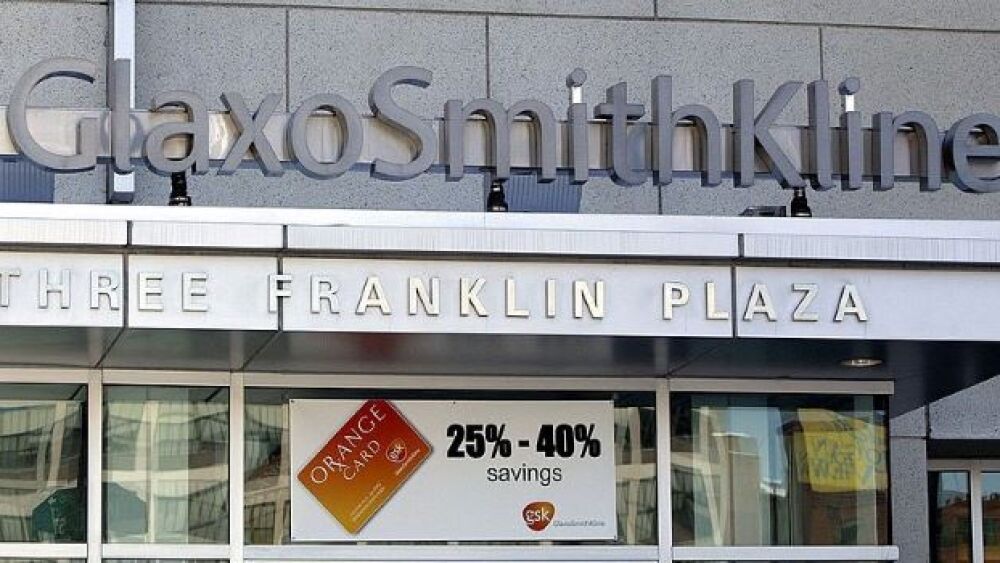GSK bolstered its position in the oligonucleotide therapeutics space through a four-year collaboration with Wave Life Sciences valued at up to $3.3 billion.
Don Murray/Getty Images
GSK has bolstered its position in the oligonucleotide therapeutics space through a four-year collaboration with Wave Life Sciences valued at up to $3.3 billion.
In the partnership announced Tuesday, GSK will harness Wave’s PRISM technology, an oligonucleotide platform that combines novel chemistry with multiple therapeutic modalities, including editing, splicing and silencing.
GSK receives an exclusive global license for Wave’s preclinical asset WVE-006, an RNA editing program that targets alpha-1 antitrypsin deficiency (AATD). WVE-006 is Wave’s most advanced RNA editing program in development. The Cambridge, MA-based company intends to file a New Drug Application for WVE-006 in 2023.
In total, GSK will advance up to eight preclinical programs, while Wave will advance up to three preclinical programs for targets identified by GSK.
The collaboration offers insight into the direction GSK will take with its pipeline under the guidance of newly-appointed Chief Scientific Officer Tony Wood, who took on oversight of the company’s R&D programs in August.
Currently, GSK has two oligonucleotide programs: bepirovirsen for chronic hepatitis B and GSK4532990 for non-alcoholic steatohepatitis (NASH).
The addition of Wave’s WVE-006 allows GSK to increase its position in this space with a potentially first-in-class therapeutic for AATD.
Oligonucleotides are short strands of DNA or RNA that can inactivate disease-causing genes through different mechanisms of action. They can address a range of genomic targets in multiple therapeutic areas, including disease indications that are difficult to treat with small molecules or biologics.
In a brief statement, Wood said oligonucleotide therapeutics are becoming a “mainstream modality.” He added that the licensing of WVE-006 complements the company’s current oligonucleotide therapeutics in development.
Earlier this year, GSK announced interim data from a hepatitis B study with bepirovirsen, which it described as “potentially transformative” due to a reduction of the hepatitis B surface antigen and viral DNA in treated patients.
GSK4532990, a siRNA oligonucleotide, is advancing to Phase II development.
GSK and Wave did not disclose potential target indications in the deal. Wave Chief Executive Officer Paul Bolno noted the range of targets will likely be in larger disease indications where there may already be limited treatment options for rare diseases, including some orphan indications.
In a call with investors Tuesday, Bolno said the collaboration will allow Wave to leverage the larger pharma company’s expertise in genetics which will enable it to build a differentiated oligonucleotide pipeline.
Over the past 10 years, Wave has built a “disruptive platform” that can potentially improve treatment options for patients facing a myriad of illnesses, Bolno said.
Bolno said GSK is an ideal partner for the development of WVE-006 due to its expertise in respiratory diseases.
AATD is a genetic disease that impacts both the lungs and liver. WVE-006 is a first-in-class RNA editing therapeutic designed to address both liver and lung manifestations of the disease. Currently, Bolno said there are limited treatment options for AATD. He added GSK is in a strong position to advance WVE-006 through the clinic and commercialization.
Current treatments for AATD liver disease require a weekly infusion of AAT protein. Other than a transplant, there are no treatments for this form of the disease.
GSK will pay Wave $170 million upfront. That includes $120 million in cash and a $50 million equity investment. Additional developmental, regulatory and commercial milestones may total up to $3.3 billion. The alliance provides Wave with cash runway through 2025, the company noted in a press release.
Beyond the collaboration with GSK, Wave is developing its own oligonucleotide pipeline for multiple indications, including ALS, Duchenne Muscular Dystrophy and Huntington’s disease.
In September, Wave presented promising data from its Phase Ib/II SELECT-HD trial in Huntington’s that showed target engagement and biomarker improvements. Bolno anticipates data from the DMD study by the end of this quarter.





